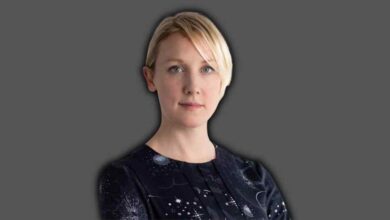Milo Arthur Johnson: A Private Life Beyond the Spotlight of Politics

Milo Arthur Johnson, the son of former UK Prime Minister Boris Johnson and esteemed barrister Marina Wheeler, has long maintained a low profile despite his high-profile lineage. Born into a family steeped in political influence, media presence, and public scrutiny, Milo has deliberately chosen a more discreet and introspective path. This article explores his upbringing, academic background, early career, interests, and family connections, painting a full portrait of a young man who has carved out a unique identity far from the glare of the political stage.
Early Life and Family Background
Milo Arthur Johnson was born in 1995 in London, England, into the well-known Johnson-Wheeler family. His father, Boris Johnson, served as the Mayor of London, Foreign Secretary, and later Prime Minister from 2019 to 2022. His mother, Marina Wheeler, is a respected Queen’s Counsel and a prominent legal professional. Milo is the second of four children from the Johnson-Wheeler marriage and the eldest son.
Growing up, Milo shared his early life with three full siblings: Lara Lettice, Cassia Peaches, and Theodore Apollo. All four children were raised in a home where intellect, cultural awareness, and ambition were strongly encouraged. Despite the media frenzy often surrounding his father, Milo and his siblings were largely shielded from the public eye during their formative years, allowing them to experience a somewhat typical childhood relative to their circumstances.
Educational Journey
Milo’s academic journey reflects his family’s strong emphasis on education. He attended Westminster School, one of the UK’s most prestigious independent schools, known for its academic excellence and elite alumni. While at Westminster, Milo was not only a capable student but also a passionate sportsman. He reportedly excelled in both football and cricket, earning the admiration of peers and staff alike. A school magazine once described him as “delight to watch” on the football field, a testament to both his athleticism and character.
Following his time at Westminster, Milo continued his higher education at SOAS (School of Oriental and African Studies), University of London. There, he studied languages and international relations, further broadening his intellectual horizons. His choice of university and subject matter reflected an interest in global affairs and diverse cultures—areas that would go on to influence his career and personal pursuits.
A Career in Journalism and Travel
After completing his studies, Milo opted to venture into journalism, avoiding the well-trodden political paths of many members of his family. In 2014, he embarked on a five-month internship with Esquire Middle East, a respected men’s magazine based in Dubai. This opportunity allowed him to hone his writing and editorial skills in a professional setting, as well as explore new cultures and regions.
Though not much is publicly known about his later career, sources close to the family and brief social glimpses suggest that Milo has continued to focus on journalism, travel writing, and cultural commentary. His multilingual capabilities—speaking English, French, Russian, and Arabic—place him in a strong position to explore global issues through a thoughtful and well-informed lens.
Unlike many in his generation who seek the validation of constant online engagement, Milo appears to prefer life away from the digital spotlight. His social media presence is minimal, and he rarely makes public appearances, underscoring his desire for privacy and perhaps a deeper sense of authenticity in his personal and professional choices.
Life Beyond Politics
It is often assumed that children of political leaders are destined to follow in their parents’ footsteps, but Milo Arthur Johnson defies that expectation. With his father’s rise to the premiership and enduring media scrutiny, Milo has managed to steer clear of public involvement in government or party politics.
Observers note that he is more aligned with the arts, language, and culture rather than the rhetoric and showmanship of Westminster. While his sister Lara Lettice has found a foothold in journalism and writing, Milo seems to have taken a more global and introspective approach, perhaps influenced by his education at SOAS and his international work experiences.
His resistance to step into the limelight is a choice that demands recognition in itself. In a world where the children of celebrities and political figures often capitalise on their surnames for public gain, Milo’s path reflects a quiet confidence, a conscious refusal to be defined solely by heritage.
Personal Traits and Interests
Descriptions of Milo from former teachers and acquaintances paint a picture of a thoughtful, intelligent, and driven young man. His achievements on the sports field and in academics show a balanced personality with discipline and determination.
His linguistic abilities also indicate a strong capacity for communication and cultural empathy. Mastering languages such as Arabic and Russian requires both intellectual commitment and an openness to different ways of life, hinting at Milo’s depth of character and global outlook.
While the specifics of his personal life remain largely private, there is an air of intellectual curiosity and worldly awareness that surrounds his story. Friends suggest that he enjoys travelling, photography, and exploring philosophical questions—interests that stand in stark contrast to the combative, often superficial world of politics and media.
Relationship with His Parents
Milo’s parents, Boris Johnson and Marina Wheeler, separated in 2018 and finalised their divorce in 2020. Despite the family changes and his father’s tumultuous political career, Milo has maintained a respectful distance from public commentary on his family affairs.
He appears to have a cordial and grounded relationship with both parents. While Boris Johnson’s political decisions have often been divisive, Milo has refrained from public political statements or endorsements. This further reinforces his desire for independence, choosing to define his life not through the lens of his father’s legacy, but through his own values and experiences.
Sibling Dynamics
Milo’s relationship with his siblings also appears close-knit. His elder sister Lara, a writer and editor, has been vocal about her perspectives in various publications. His younger siblings, Cassia and Theodore, are both pursuing academic and creative paths of their own. Together, the Johnson-Wheeler children present a portrait of a modern, educated, and accomplished family, each member pursuing their unique journey while remaining grounded.
Milo also has several half-siblings from Boris Johnson’s later relationships, including Wilfred and Romy with his wife Carrie Johnson. The expanding family dynamic does not seem to have disrupted Milo’s own path, as he continues to maintain a balanced approach to personal and professional life.
A Future Unwritten
What lies ahead for Milo Arthur Johnson remains an open question. With his talent in languages, experience in journalism, and global sensibility, he could take on numerous roles—whether as a foreign correspondent, a cultural commentator, or even an academic.
What’s clear is that Milo’s deliberate choice to avoid the trappings of fame and fortune has earned him quiet admiration. He represents a new generation of young British professionals—intelligent, curious, and ethically grounded—who are defining success on their own terms.
In many ways, Milo symbolises the shift away from traditional pathways in high-profile families. His story shows that with the right upbringing and personal conviction, it is entirely possible to exist alongside power without becoming consumed by it.
Conclusion
Milo Arthur Johnson stands as a compelling figure, not for what he has inherited, but for what he has consciously chosen. In an era obsessed with exposure and influence, his discretion speaks volumes. Educated, multilingual, and quietly impactful, he embodies the qualities of a modern thinker—one who sees the world through a lens of understanding rather than domination.
As the son of one of Britain’s most recognisable political figures, Milo could easily have leveraged his background for personal gain. Instead, he has taken the path less travelled—one marked by intellect, authenticity, and purposeful living. Whatever the future holds, Milo’s story serves as a refreshing reminder that greatness does not always come with headlines or hashtags, but sometimes with depth, intention, and quiet determination.



